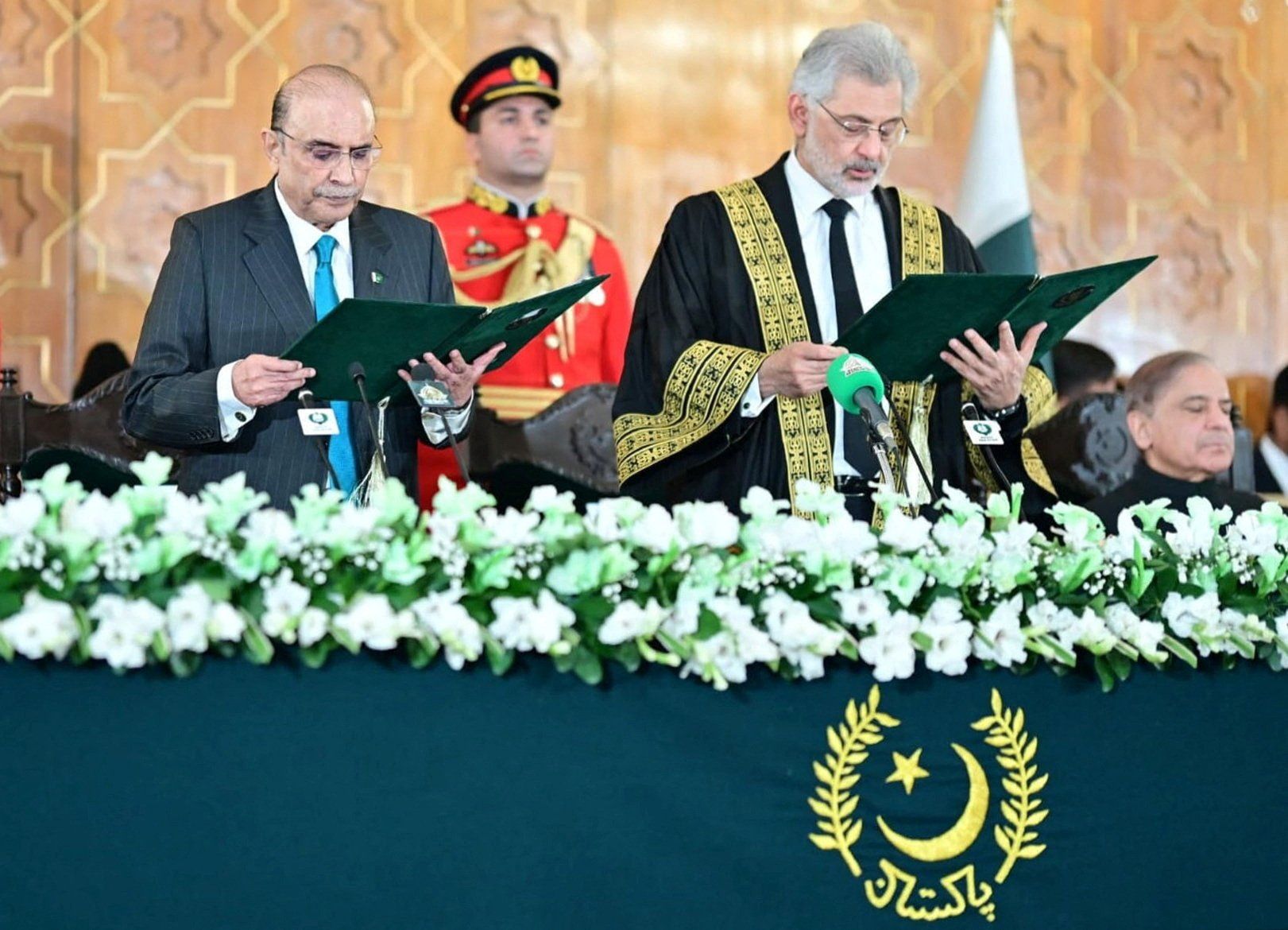Stop us if you’ve heard this one before: In Pakistan, it’s still the military that calls the shots. That said, Pakistan’s election (now set for Feb. 8) promises plenty of drama – and potential unrest.
Voters will fill all 342 seats in the lower House of Parliament, most of which are in single-member constituencies. The remaining seats are awarded through a proportional, party-based allocation system. Critics charge that the military has done a bit of gerrymandering to shape the results.
The candidates: The country’s most popular politician, former Prime Minister Imran Khan, has pushed back against attempts to keep him and his PTI party off the ballot. But on Dec. 30, Pakistan’s election body ruled that Khan remains banned from politics and can’t run. Like many of his predecessors, Khan has spent time in power and then in jail, but he remains popular enough to galvanize support against military manipulation of the outcome.
Also in the running is former Prime Minister Nawaz Sharif, also once imprisoned for corruption, who has returned to the country after four years of exile in the UK. Sharif has also been banned from politics, but he now appears to have the backing of the same military that ousted him from power in 1999.
Finally, there is Bilawal Bhutto Zardari, representative of yet another political dynasty with more than its share of triumph, turmoil, and tragedy.
Where things stand: If the military allows this vote to take place, Sharif and his party are likely to win. The next question is how Khan and his supporters respond, perhaps in the streets.
